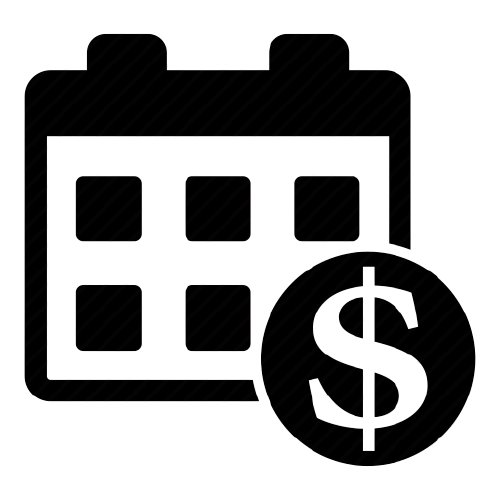Mortgage refinancing in Canada is a significant financial decision that requires careful consideration and comprehensive understanding. This guide aims to equip you with essential knowledge about the process, benefits, and considerations of mortgage refinancing.
Understanding Mortgage Refinancing
Mortgage refinancing involves replacing your existing mortgage with a new one that comes with different terms and conditions. The new loan pays off the current balance of the existing mortgage.
The new loan could have a different interest rate, a varying repayment period, or different conditions that might enable accelerated repayment.
The process of mortgage refinancing in Canada is similar to applying for a fresh mortgage. It involves re-assessment of your income, debt, credit history, and the current value of your property.
Why Consider Mortgage Refinancing?
There are several reasons why homeowners choose to refinance their mortgage:
1. Lower Borrowing Costs: Refinancing can provide lower interest rates, extended repayment periods, or new conditions that allow accelerated repayment.
2. Access to Cash: Refinancing allows homeowners to access any remaining funds after paying off the previous mortgage. This could be used for home renovations, investment in property, funding a child’s education, starting a new business, or consolidating debt.
Remember, any funds accessed through refinancing will attract interest charges. Therefore, it’s advisable to use the funds for investments that appreciate or provide value.
How Much Can You Borrow?
When refinancing, homeowners can borrow up to 80% of the appraised value of their home. However, a part of this amount would be used to pay off any outstanding balance on the current mortgage. The remaining amount can be used as per the homeowner’s discretion.
The Cost of Refinancing a Mortgage
Refinancing a mortgage involves certain costs such as legal fees, title search and insurance fees, home appraisal fees, and mortgage discharge fees (if you change lenders).
Additionally, prepayment penalties may apply, leading to thousands of dollars in upfront charges, not to mention the interest you’ll pay. Therefore, understanding the full cost of refinance is crucial to accurately compare it to other financing solutions.
The Right Time to Refinance
The ideal time to refinance is near the end of your mortgage term, especially if you have a closed, fixed-rate mortgage. This is because prepayment penalties may apply if you pay off your mortgage early.
However, the decision to refinance should be based on a careful analysis of whether the benefits outweigh the costs. Factors to consider include existing mortgage rates, legal and closing costs, the cost of breaking your mortgage, and the potential impact on your lifestyle.
Pros and Cons of Refinancing
Refinancing has its benefits and drawbacks. On the positive side, it can help save money by securing a lower interest rate, reduce monthly payments, and provide access to funds for major purchases or debt consolidation.
However, the drawbacks include a potential extension of your mortgage term, payment of penalties or fees, and a possible increase in the interest rate.
Alternatives to Mortgage Refinancing
If refinancing doesn’t seem suitable, other options include a blend-and-extend option, a home equity line of credit (HELOC), or a home equity loan.
Step-by-Step Guide to Mortgage Refinancing in Canada
Mortgage refinancing is a serious and long-term commitment. Here are the steps to follow:
- Decide if You Need a Loan: Ensure you have a valid reason for refinancing.
- Evaluate if Refinancing is the Best Option: Research about the current value of your property and market rates in your region.
- Determine if You Can Afford the Monthly Repayments: Calculate your potential loan amount and the affordability of monthly payments.
- Understand Your Credit Score: Lenders will assess your credit history and score to determine your creditworthiness.
- Explore Your Refinancing Options: Different lenders offer different mortgage terms and interest rates.
- Calculate the Total Cost of Refinancing: Consider all expenses associated with refinancing, including home appraisal costs, title search fees, title insurance fees, and legal costs.
- Submit Your Loan Application: Provide all required documents along with your application.
- Get Approved and Review the Proposed Mortgage Agreement: Thoroughly read and review the terms and conditions of the loan agreement.
By following these steps, you can ensure a smooth and successful mortgage refinancing process.
Frequently Asked Questions about Mortgage Refinancing
Can you refinance a mortgage multiple times?
In Canada, there are no limits on the number of times you can refinance a mortgage. However, each refinance could cost you in administration fees or penalties.
Can you refinance your mortgage at any time Canada?
Yes, you can refinance your mortgage at any time in Canada. However, you may face penalties or fees for breaking your current mortgage contract early, especially if you’re not at the end of your term. It’s important to weigh the potential savings of a lower interest rate against these costs to ensure refinancing is beneficial.
What is the difference between remortgaging and refinancing?
Remortgaging and refinancing are often used interchangeably, but they do have slight differences. Remortgaging generally refers to switching your mortgage to a new lender to get a better interest rate or terms. Refinancing, on the other hand, typically involves changing the terms of your existing mortgage with the same lender. This could include borrowing more money, extending the term, or changing the type of mortgage.
Will refinancing a mortgage affect my credit?
Refinancing can temporarily impact your credit score. When you apply to refinance your mortgage, the lender will perform a hard credit inquiry, which can lower your score by a few points. However, if you make your new loan payments on time, your score should rebound and may even improve in the long run. It’s also worth noting that multiple refinancing applications within a short time frame can have a more significant impact on your credit score.
Conclusion
Mortgage refinancing in Canada can be a beneficial move if done thoughtfully and at the right time. It’s crucial to understand all aspects of the process before making a decision.
If you’re considering mortgage refinancing, Citadel Mortgages can provide expert guidance and help you secure the best deal. With our team of knowledgeable professionals, you’ll be on your way to achieving your financial goals.
Ready to refinance your mortgage? Apply now or contact us for more information.

Unexpected costs when buying a home in Canada
When buying a home in Canada, there are several unexpected costs that buyers should be aware of to avoid financial surprises. Some of the key

Considering An Early Mortgage Renewal
Why consider renewing your mortgage ahead of time? Well, one big reason is changes in interest rates. If rates drop, jumping on an early renewal

How to get a HELOC on an Investment Property in Canada
To get a Home Equity Line of Credit (HELOC) on an investment property, you need to follow these steps: 1. Know Your Finances: Estimate the

Expert Advice: Buying a House in Cash in Canada
In exploring the possibility of buying a house in cash in Canada, it’s essential to understand the various aspects that come into play. Here’s a

Average Down Payment for a House in Canada
According to the Canadian Real Estate Association, the average house price in Canada hit around $637,673 in August 2022. This means if you’re looking to

Assumable Mortgages: An In-Depth Look
Assumable mortgages are a unique financing alternative that could potentially save you thousands of dollars and simplify the home-buying process. But what exactly are they









